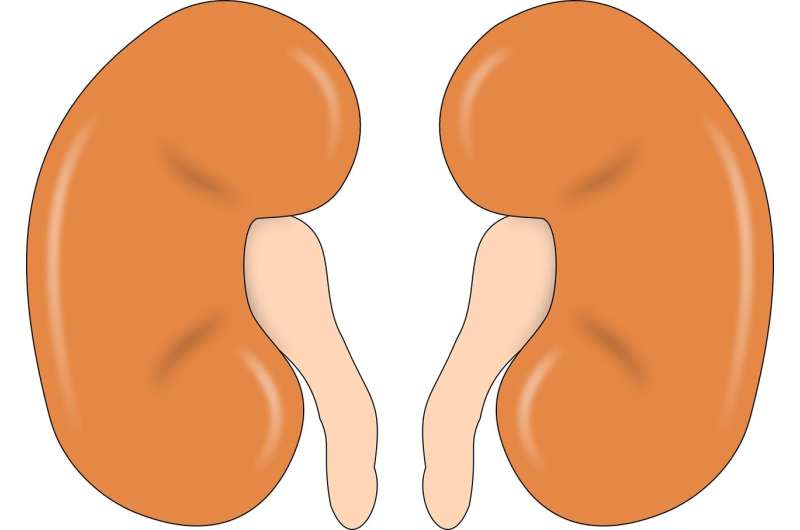Credit: CC0 Public Domain
High blood pressure has a range of effects on the body that can influence both physical and mental health. Two studies in an upcoming issue of CJASN offer insights gained from "ambulatory" blood pressure monitoring, which is conducted while people go about their daily activities, including during sleep. This type of monitoring can provide more information than blood pressure measurements taken only in clinics.
In an analysis of 561 African Americans with and without chronic kidney disease who underwent ambulatory blood pressure monitoring, Paul Muntner, MD, Stanford Mwasongwe, MPH (University of Alabama at Birmingham), and their colleagues found that having kidney disease was associated with uncontrolled blood pressure measured in the clinic and outside of the clinic. Also, among participants with kidney disease, uncontrolled ambulatory blood pressure was associated with a higher prevalence of left ventricular hypertrophy, a marker of cardiovascular disease.
"Getting an accurate estimate of blood pressure is important for people with kidney disease given the association of blood pressure with cardiovascular disease and kidney disease progression in this population," said Dr. Muntner. "The current study showed that a high proportion of people with kidney disease have high blood pressure when measured outside of the doctor's office."
In another study that followed 1,502 adults with chronic kidney disease for 4 years, Lama Ghazi, MD (University of Minnesota) and her colleagues found that ambulatory blood pressure patterns were not linked with cognitive impairment or frailty. "However, among participants older than 60 years, those who demonstrated at least a 20% drop in average systolic blood pressure from day to night—called extreme dippers—had a higher risk of developing cognitive impairment," said Dr. Ghazi. Also, participants with masked hypertension (normal clinic-measured blood pressure but elevated ambulatory blood pressure) had worse physical functioning than participants with hypertension controlled with medication.
Dr. Ghazi noted that future research should assess links between ambulatory blood pressure and physical and cognitive function over a longer follow-up period.
An editorial accompanies the CJASN studies.
More information: "Ambulatory Blood Pressure Phenotypes in Adults Taking Antihypertensive Medication with and without CKD" DOI: 10.2215/CJN.08840719
"Association of 24 hour Ambulatory Blood Pressure Patterns with Cognitive Function and Physical Functioning in Chronic Kidney Disease," DOI: 10.2215/CJN.10570919
"Ambulatory BP phenotypes and their association with target-organ damage and clinical outcomes in CKD," DOI: 10.2215/CJN.02590220
Provided by American Society of Nephrology





















